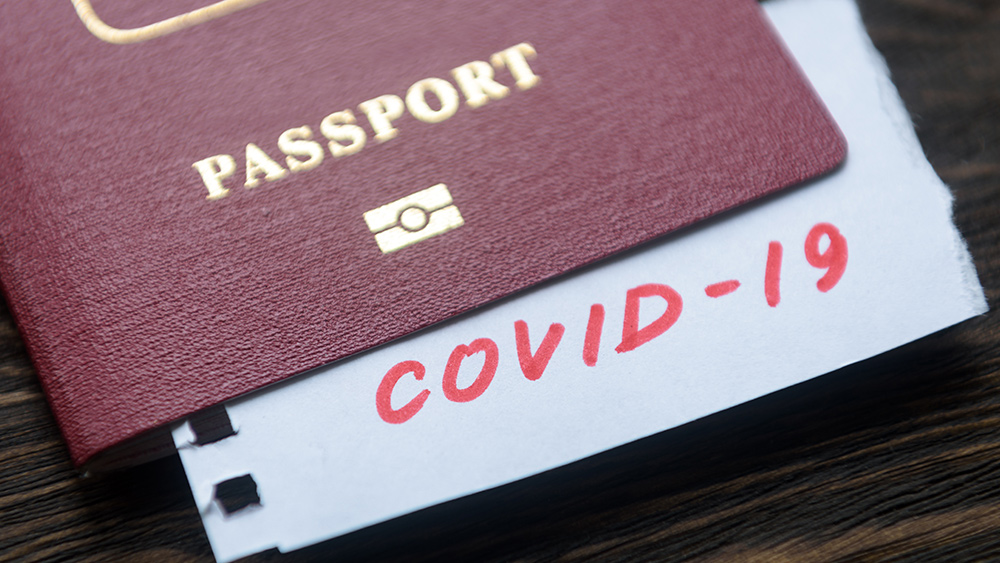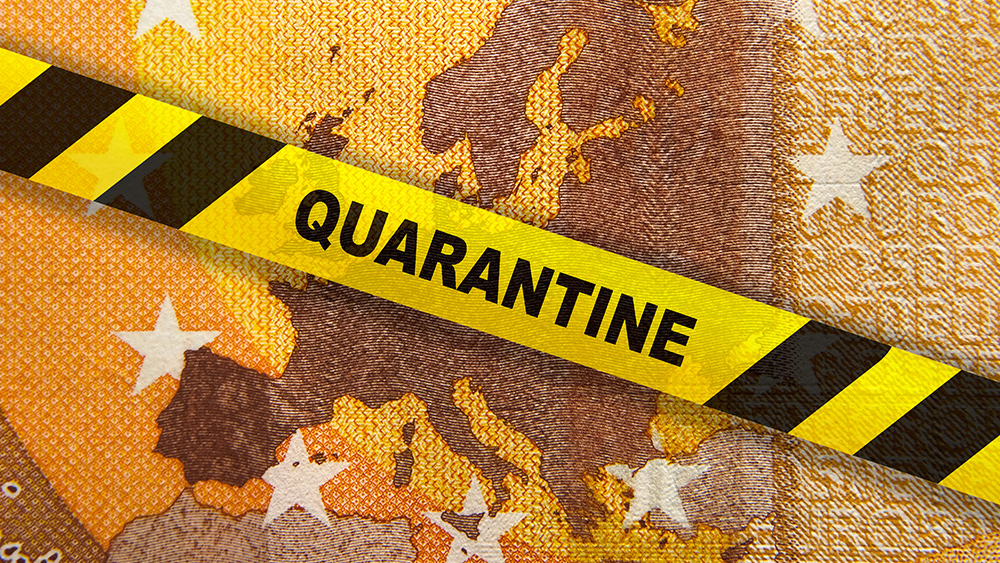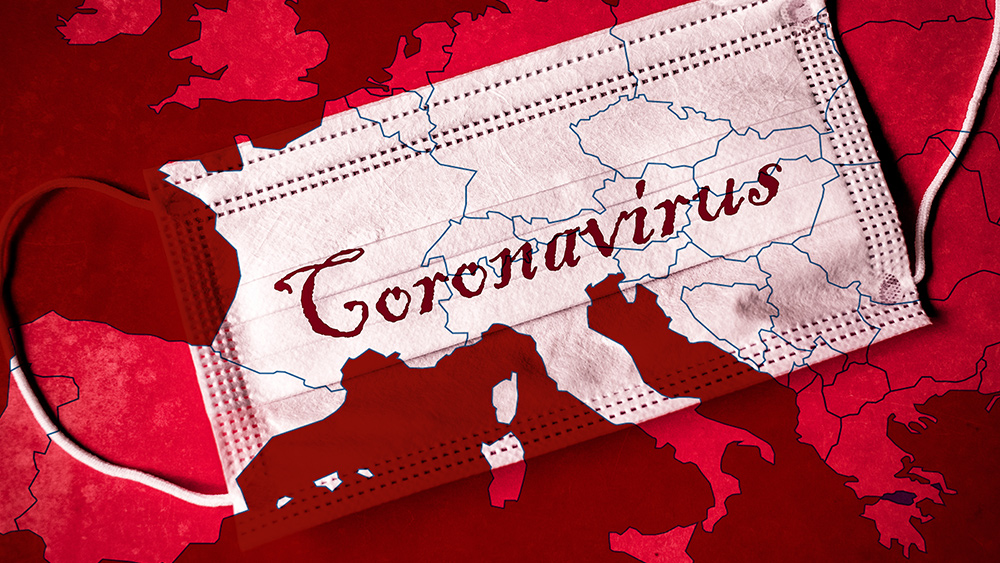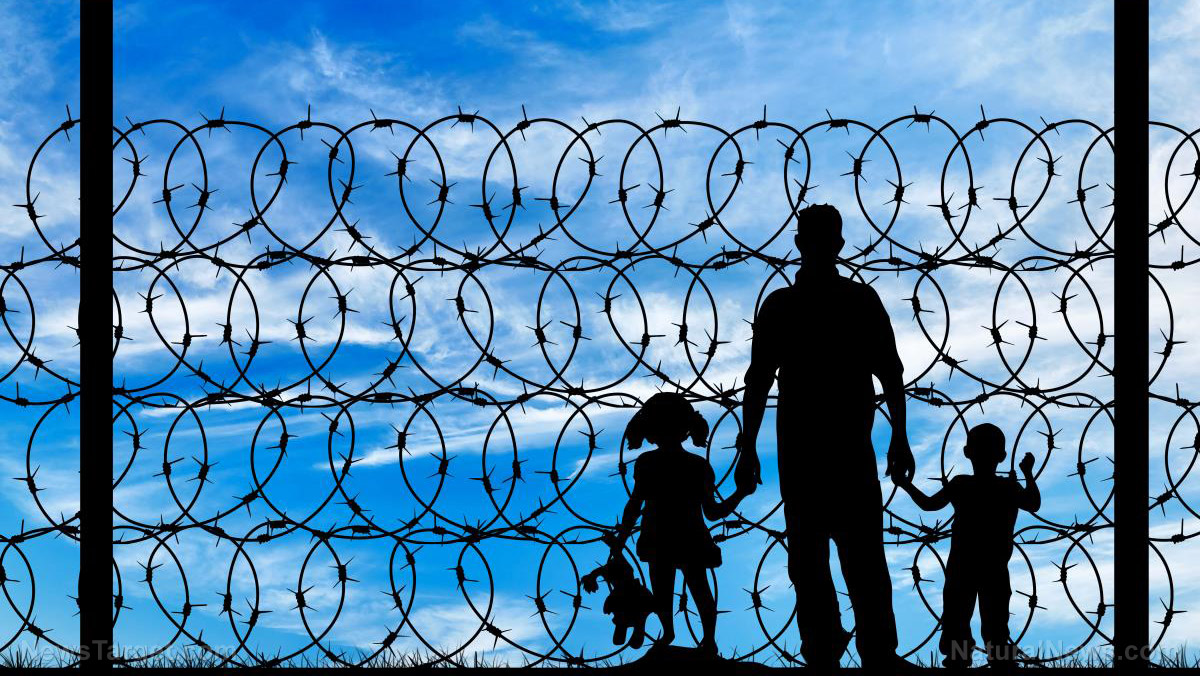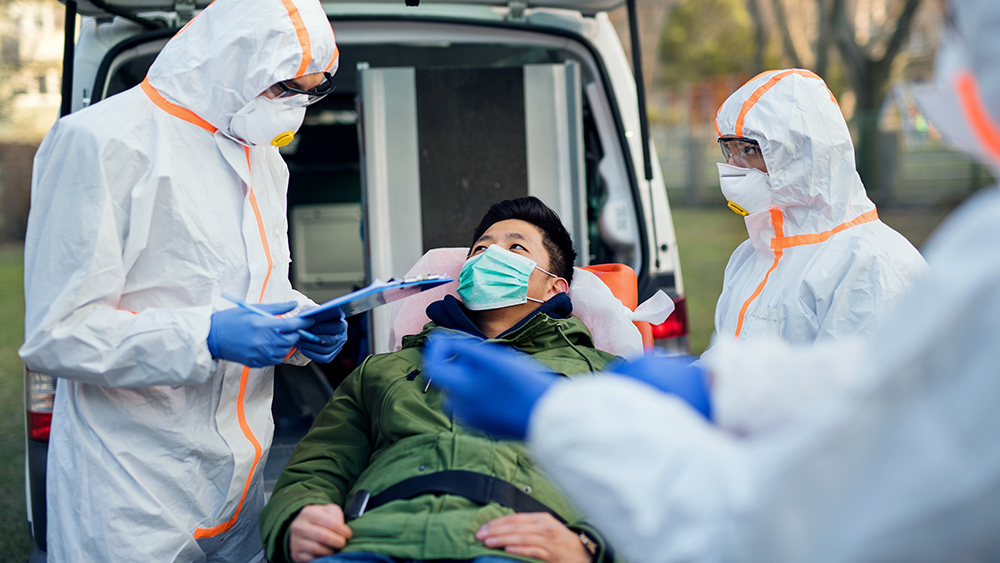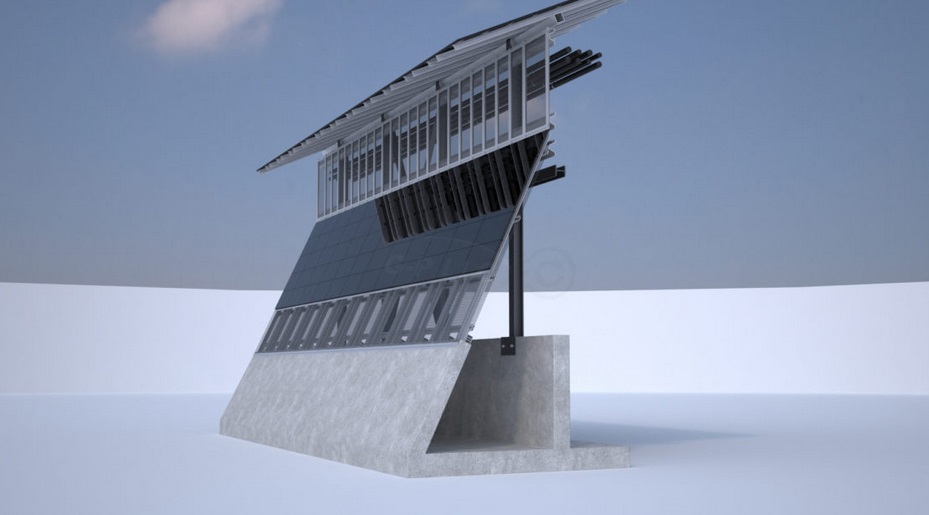Coronavirus hits the Mediterranean: Body bags fill up in Spain, while robots patrol Tunisian streets
04/04/2020 / By Franz Walker
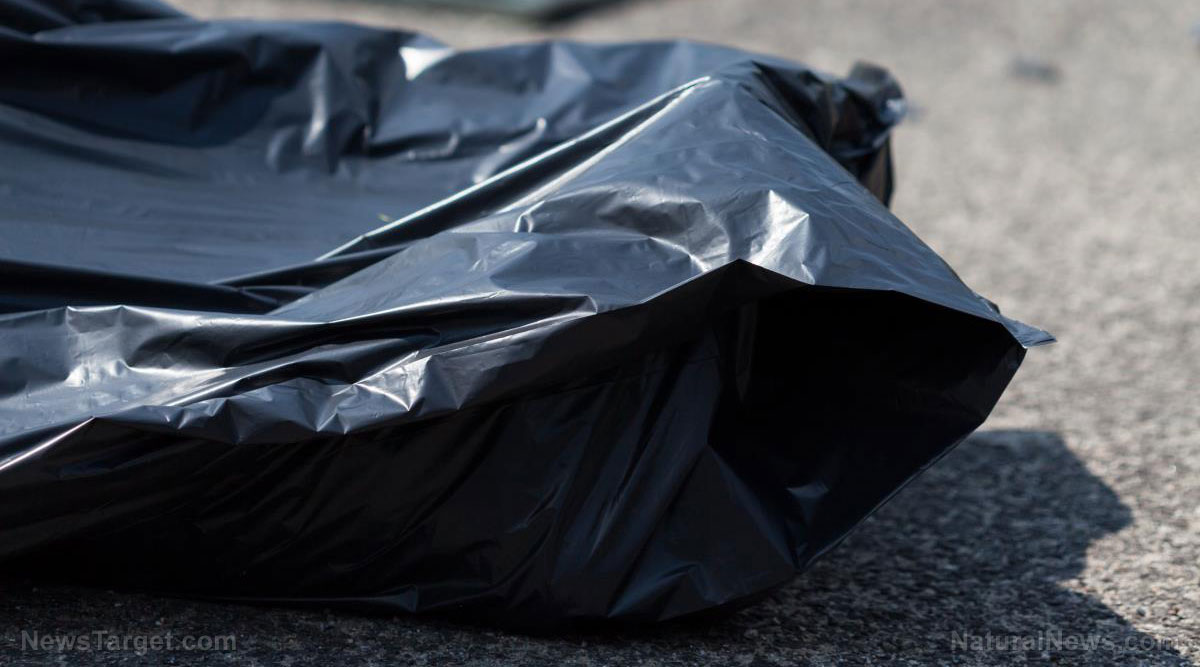
Mediterranean countries like Spain and Italy are some of the hardest-hit by the coronavirus pandemic. In Spain, a recent footage from a Spanish hospital showed body bags strewn all over the floor, while in Tunisia, officials have taken to using robots to patrol the streets to keep people indoors.
Footage showing dead bodies laid out on the floor of a Spanish hospital was shared by the Daily Star. The footage was shot by a nurse working at the hospital in Spain highlighting the extent of the outbreak in the country.
Wading through the dead
In the footage shared by the Spanish nurse, they can be seen wading through body bags that have simply be strewn all over the floor of the hospital. The way the bodies had been laid out on the floor leaves almost no space for the nurse to step through. Even moments where a break in the sea of body bags appears only last for so long before more body bags can fill the camera.
The footage clearly shows each body bag tagged with a piece of paper showing the name of the victim inside. However, staff have confirmed that in the chaos, some of the deceased have become lost as their names tags have fallen off in the shuffle.
“People are dying at such a rate it is proving hard to keep track,” stated one source.
A British citizen who was a friend of one of the deceased called the situation “devastating.” The same person also confirmed that name tags were being lost and some of the bodies were now unidentified.
“I’ve heard there have been mix-ups – people lost. I can’t blame the medical staff,” they said. “They are doing their best in appalling circumstances.”
They added that “they [the healthcare workers] need support right now – not criticism.”
Spain currently has the third-highest number of coronavirus cases in the world, with 119,199 cases as of reporting time. It also ranks second in terms of deaths with 11,198 people having succumbed to the disease.
That number doesn’t seem like it’ll be going down anytime soon. Yesterday, the country reported a record 1,000 deaths from the coronavirus, this was following five straight days where the number of deaths reached about 800.
Robot lockdown patrol
Unlike Spain, the number of coronavirus cases in Tunisia has yet to reach the thousands, sitting at 495 as of reporting time. The country has also only seen 18 deaths from the outbreak. However, it seems that Tunisian authorities aren’t taking chances. Not only have strict lockdown orders been in place in the country since March 22, but it’s keeping its police out of harm’s way by using robots to enforce the lockdown in their stead.
Tunisia’s interior ministry has deployed PGuard, a remote operated ‘robocop’ equipped with thermal and infrared imaging cameras as well as a sound and light alarm. The ministry has shared footage of PGuard in action where calls out to suspected violators of the lockdown.
According to creator Anis Sahbani, PGuard was first produced in 2015 to carry out security patrols. He mentioned that while PGuard is remotely controlled by human operators, it can also function in autonomous mode via artificial intelligence.
A number of the units have been donated to the interior ministry by Sahbani’s Enova Robotics firm. The firm is also set to deploy more robots to either help patients communicate with relatives or to assist with coronavirus testing.
The PGuard robots have garnered attention in social media with citizens posting footage of it in action in parts of the capital city of Tunis. However, the robots do still raise come concerns, especially considering that they were originally made for use by security forces in conflict zones.
Sources include:
Tagged Under: badtech, bodies, bodybags, coronavirus, covid-19, deceased, Europe, flu, future science, government, hospital, infections, lockdown, Mediterranean, outbreak, pandemic, Police, priority, quarantine, robot, Spain, superbugs, tunisia, virus
RECENT NEWS & ARTICLES
COPYRIGHT © 2018 OPENBORDERS.NEWS
All content posted on this site is protected under Free Speech. OpenBorders.news is not responsible for content written by contributing authors. The information on this site is provided for educational and entertainment purposes only. It is not intended as a substitute for professional advice of any kind. OpenBorders.news assumes no responsibility for the use or misuse of this material. All trademarks, registered trademarks and service marks mentioned on this site are the property of their respective owners.



